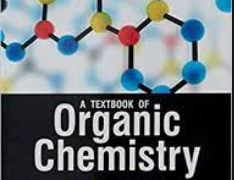No products in the cart.
112
SENIOR TWO CHEMISTRY Senior two chemistry is a continuation of Chemistry senior one course and also has more information about …
SENIOR TWO CHEMISTRY
Senior two chemistry is a continuation of Chemistry senior one course and also has more information about the units of Chemistry provided.Topics provided here are related to each other in such a way that Atmosphere, oxygen, gases etc.Chemistry is an amazing subject that requires attention to detail and understanding specific skills, in particular senior two chemistry should be read consistently. For better results in the subject.It also has content that can give you more knowledge and it is also a compulsory course for students.The course also has a series of videos and links in the respective units which make it easy for a person to understand the topics.Course Currilcum
- CHE2: INTRODUCTION TO OXYGEN Details FREE 1 year
- By the end of this topic students should be able to prepare oxygen in the laboratory and state its properties and uses Specific objectives, Draw and label the experiment t for preparing oxygen, Prepare oxygen in the laboratory , State the physical and chemical properties off oxygen, Test for oxygen Describe the procedure for industrial preparing of oxygen and State the uses of oxygen.
- CHE2: RUSTING Details 1 year
- By the end of this topic student should be able to prevent rusting of iron, Define rusting, State condition necessary for rusting, Carry out experiment to investigate rusting and state the composition of rust, Outline the methods for preventing rusting.
- CHE2: OXIDES Details 1 year
- By the end of this topic students should be able to classify the products of burning elements in oxygen either acid or basic. Define an oxide, State the different types of oxides, Give examples of each type oxide, Describe what is observed when C, Cu, P Na and Mg burn in air and Classify The products of combustion in oxygen either acidic or basic.
- CHE2: WATER Details 1 year
- By the of this topic (Water) students should be able to; state the properties of water, State the components of water, Test the product of burning organic matter, Explain the Experiment that water contains hydrogen, State the products of reaction of water and steam with metals, List the reactivity series of the obtained water/metal reactions, Composition of water, The water cycle, Burning of organic matter (energy source), Water as an oxide for hydrogen (burning hydrogen and candle in air),Reaction of metal with water and mg, ca, Na, with water and zinc, Fe, with steam.
- CHE2: HARDNESS OF WATER Details 1 year
- Water can be classified as hard or soft. Soft water is one which forms lather readily with soap. Examples of soft water include: rain water, distilled water, deionised water. In this topic we dive into hardness of water
- CHE2: HYDROGEN Details 1 year
- By the end of this Unit Learners will be able to; Prepare hydrogen and test for hydrogen in the laboratory, State the physical and chemical properties f hydrogen, Outline the uses of hydrogen. Explain oxidation as gain of oxygen ad reduction as loss of oxygen with reference to metal oxide-hydrogen reaction
- CHE2: ATOMIC STRUCTURE. Details 1 year
- BY the end of this Unit Learners will be able to; Define atom, Name the particles of the atom, Draw the electronic structure, State the charges on each of the particles of the atom, Define atomic number, relative atomic mass and isotope and Write the electronic configuration of various elements (first twenty in the periodic table.
- CHE2: ISOTOPES AND ISOTOPY Details 1 year
- Isotopes are atoms of the same element with the same number of protons but different number of neutrons.
- CHE2: THE PERIODIC TABLE Details 1 year
- In this Unit Learners will be able to; Define the periodic table, Describe the history of the periodic table, Arrange the firs 20 elements of the periodic table, Identify metals, non-metals and noble gases in relation to outermost shells and Describe group and period.
- CHE2: ACIDS, BASES AND INDICATORS Details 1 year
- Under this Unit learners will be able to; Define acid base and indicator,Prepare and use of plant extracts as acid base indicators, Use of universal indicator to determine PH of solution, State the character of acids and bases and Outline the application of acid base neutralization.
- CHE2: SALTS Details FREE 1 year
- Under this unit learners will be able to Identify soluble and insoluble salts, Select an appropriate method for preparing of salts, Explain term salt saturated solution crystallisation, neutralisation and precipitations. Descried and explain from experiment observation. The action of heat on various salts
- CHE2: EFFECTS OF ELECTRICITY ON SUBSTANCES Details FREE 1 year
- Effects of Electricity on substances. Define conductor/non- conductor electrolyte non electrolyte and particles which may contain (ions, molecules), Name products of simple binary electrolytes, Explain that electrolysis is a means of obtaining elements from chemical compounds

